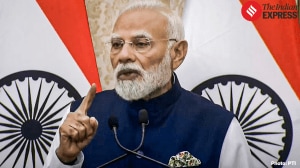Govt hikes fine on fake drug dealers
The UPA Government has decided to get tough with spurious drug manufacturers but has stopped short of putting the offenders on death row. Th...

The UPA Government has decided to get tough with spurious drug manufacturers but has stopped short of putting the offenders on death row. The Cabinet, on November 3, decided to increase the fine from the present Rs 1 lakh to Rs 25 lakh and also three times that of the drugs confiscated, but rejected the death penalty as ‘‘too stringent’’.
The decision to make spurious drug dealing a cognizable and non-bailable offence stands. The Government also decided to form special courts to hear out cases on the issue.
In a unanimous decision, the Cabinet decided that instead of awarding death penalty there should be more stringent financial litigations.
The former government had insisted on capital punishment as ‘‘the only major deterrent’’ following recommendations from a committee set up to look into the issue of spurious drugs in January 2003.
The committee headed by R.A.Mashelkar, Director General of Council for Science and Industrial Research, had, apart from recommending amendments in the Drug and Cosmetic Act 1956, also suggested death penalty as punishment for spurious drug dealers.
The Cabinet had approved the introduction of the bill seeking death penalty for fake drug makers on December 19, 2003 in a meeting chaired by the former PM A.B. Vajpayee.
Clarifying the problem is much less than what was projected by media reports last year, Union Health Minister Dr Anbumani Ramadoss said that the data pertaining to overall drug samples tested in the country has shown 0.4 per cent drugs may be spurious.
‘‘About 8-10 per cent of the samples have been declared not of standard quality due to various reasons,’’ he said.



- 01
- 02
- 03
- 04
- 05




























